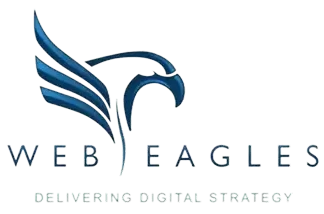Developing Your SEO Strategy
Search Engine Optimisation (SEO) might sound complicated, but it’s just making sure your customers can find your website by optimising your online presence for search engines like Google.
What is SEO and why does it matter?
The majority of website traffic comes from search engines. Consumers are more likely to trust organic search results, which have a much higher click-through rate than paid search engine ads.
SEO is the process of increasing the quantity and quality of traffic to your website through unpaid search engine results.
You need to show search engines that your content is the best result for the topic at hand, making your website come in at a higher position on the search engine, which will increase visibility and website traffic.
The investment of time and money into optimising the content on (and off) your website, improving user experience and developing your site in the right way will lead to long-term, cost-effective and quantifiable results.
Relevance and prominence — the two pillars of SEO
Keep the content on your website relevant by keeping the following things in mind:
- Keyword density — You want customers to find you when searching for specific keywords, so aim to associate your brand with the right words and phrases by using these keywords appropriately, and with restraint, throughout your website.
- Topic authority — Position your brand as an authority in your industry through dynamic, relevant, engaging and regularly updated content.
- Articles and internal linking — Use succinct, relevant text to link to articles within your website to help establish yourself as a topic authority.
Your visibility or prominence around the internet, not just on your website itself, can contribute to boosting your SEO efforts:
- The visibility of your brand on social media channels can have a significant influence on your search ranking. Post regular, dynamic content on your social media channels and encourage followers to engage with your page and click through to your website.
- Encourage customers to leave reviews of your business on relevant online review sites and thank reviewers for their feedback.
- Investigate local online business directories to get your business cited on other websites, apps and social platforms.
- Search engines like to see your website linked to by other reputable websites. While this isn’t something you can control, you can help by networking with editorial teams from relevant websites and positioning your business as a key part of your industry community.
Optimising for Google
In Australia, Google dominates the search engine market with 94.5% market share. When talking about SEO, we are often focused on optimising for Google specifically.
Google’s organic ranking system favours a few different factors. To make the best SEO impression, make sure your website is mobile friendly and your pages load quickly, don’t try to trick Google by using irrelevant keywords and position yourself as an authority in your industry to encourage sharing and backlinks.
Lastly, you can claim and verify your business’s Google listing for free, which will enhance your SEO for both Google Maps and general rankings. Make the most of your Google listing and increase engagement through features that let your customers make bookings, ask direct questions and leave reviews.
For more digital marketing tips and tricks, sign up for our weekly webinars through the button below.


